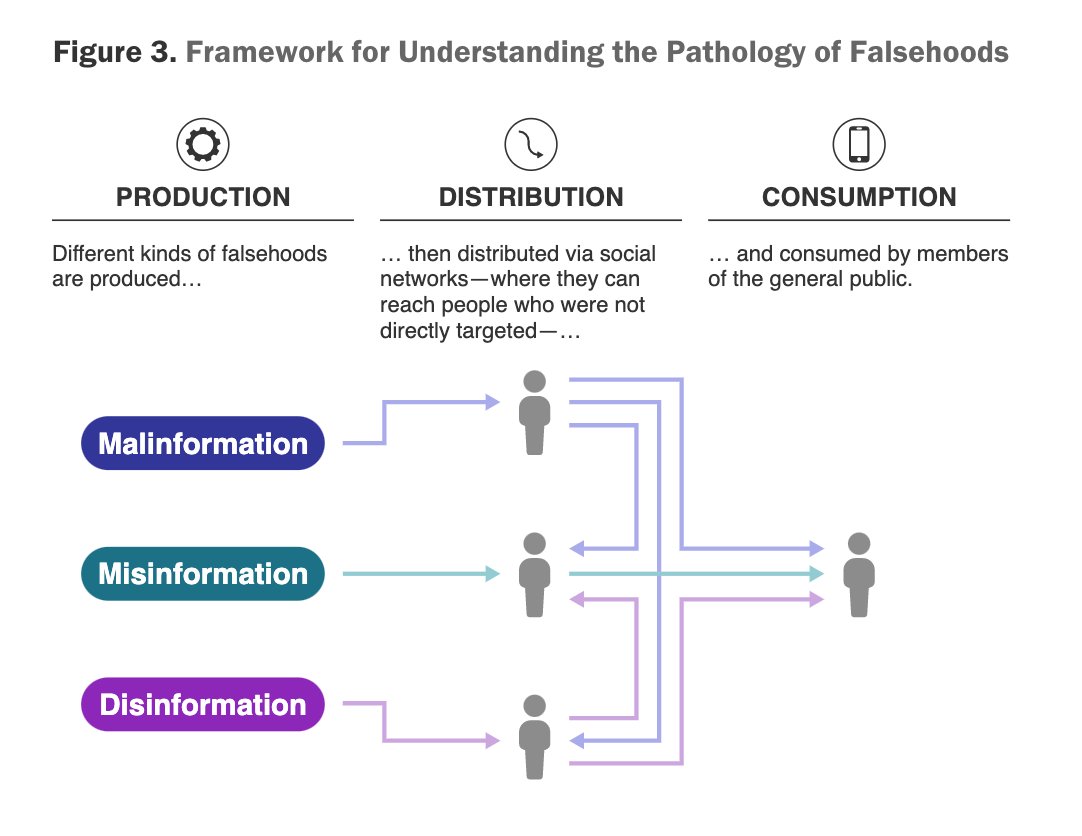Russian interference in U.S. elections focuses on creating distrust. The goal? Paralyze the American political process.
As election season progresses, Russia might try again to manipulate and divide voters via social media. Here& #39;s how. [thread] https://bit.ly/3jkjk8y ">https://bit.ly/3jkjk8y&q...
As election season progresses, Russia might try again to manipulate and divide voters via social media. Here& #39;s how. [thread] https://bit.ly/3jkjk8y ">https://bit.ly/3jkjk8y&q...
First, it’s important to remember that foreign interference in U.S. politics isn’t new. Examples abound throughout American history.
However, Russia has advanced its tactics into a comprehensive foreign policy tool that seeks to undermine U.S. processes of democratic governance.
However, Russia has advanced its tactics into a comprehensive foreign policy tool that seeks to undermine U.S. processes of democratic governance.
Recent efforts to meddle in elections are based largely on strategies developed by the Soviet Union during the Cold War.
Our researchers believe Russian information efforts are based on reflexive control theory, which assumes people live in a polarized world defined by strife.
Our researchers believe Russian information efforts are based on reflexive control theory, which assumes people live in a polarized world defined by strife.
Reflexive control theory doesn’t try to convince Americans in political party A that they are in conflict with Americans from political party B.
Rather, it assumes this conflict already exists.
Rather, it assumes this conflict already exists.
Russia tries to generate, spread, and amplify falsehoods that distort views of "us" versus "them." The goal is to:
 https://abs.twimg.com/emoji/v2/... draggable="false" alt="➡️" title="Pfeil nach rechts" aria-label="Emoji: Pfeil nach rechts">Drive Americans to view their fellow citizens as either friends or adversaries
https://abs.twimg.com/emoji/v2/... draggable="false" alt="➡️" title="Pfeil nach rechts" aria-label="Emoji: Pfeil nach rechts">Drive Americans to view their fellow citizens as either friends or adversaries
 https://abs.twimg.com/emoji/v2/... draggable="false" alt="➡️" title="Pfeil nach rechts" aria-label="Emoji: Pfeil nach rechts">Exhaust them to the point that they disengage from civic affairs altogether
https://abs.twimg.com/emoji/v2/... draggable="false" alt="➡️" title="Pfeil nach rechts" aria-label="Emoji: Pfeil nach rechts">Exhaust them to the point that they disengage from civic affairs altogether
Russia& #39;s information efforts attempt to polarize and disrupt social cohesion. Some tactics aim to exacerbate existing fissures by focusing on divisive issues, such as racial inequities or immigration.
Russia is an equal-opportunity exploiter; reports suggest that the Kremlin’s trolls have targeted both white supremacists and civil rights activists.
Other efforts target public confidence in democratic institutions and processes as a way to undermine social trust.
Russia’s ultimate goal is to reduce the probability that Americans find common ground on issues of public concern.
Russia’s ultimate goal is to reduce the probability that Americans find common ground on issues of public concern.
So what can be done to respond to Russia’s election interference?
Our research identifies three recommendations…
Our research identifies three recommendations…
This could take the form of public service campaigns about shared interests, as well as warnings about Russian meddling.
Democracy depends on citizens reaching consensus with people whom they might view as different. Foreign adversaries will continue to try to undermine this.
The best defense is a holistic approach that accounts for preexisting fault lines in American society.
The best defense is a holistic approach that accounts for preexisting fault lines in American society.
To learn more, check out our full report here: http://bit.ly/3jkjk8y ">https://bit.ly/3jkjk8y&q...
This report is the first in a four-part series aimed at helping policymakers and the public understand—and mitigate—the threat of online foreign interference in national, state, and local elections. Stay tuned for more.
In the meantime, you can read more about Russia’s “firehose of falsehood” approach to propaganda… https://bit.ly/3jkabwX ">https://bit.ly/3jkabwX&q...

 Read on Twitter
Read on Twitter A holistic strategy is the optimal response. Any defensive strategy should account for the complex relationships that exist among the production of falsehoods, how others distribute content (particularly online), and the effects this content has on consumers." title="https://abs.twimg.com/emoji/v2/... draggable="false" alt="1️⃣" title="Tastenkappe Ziffer 1" aria-label="Emoji: Tastenkappe Ziffer 1"> A holistic strategy is the optimal response. Any defensive strategy should account for the complex relationships that exist among the production of falsehoods, how others distribute content (particularly online), and the effects this content has on consumers." class="img-responsive" style="max-width:100%;"/>
A holistic strategy is the optimal response. Any defensive strategy should account for the complex relationships that exist among the production of falsehoods, how others distribute content (particularly online), and the effects this content has on consumers." title="https://abs.twimg.com/emoji/v2/... draggable="false" alt="1️⃣" title="Tastenkappe Ziffer 1" aria-label="Emoji: Tastenkappe Ziffer 1"> A holistic strategy is the optimal response. Any defensive strategy should account for the complex relationships that exist among the production of falsehoods, how others distribute content (particularly online), and the effects this content has on consumers." class="img-responsive" style="max-width:100%;"/>


